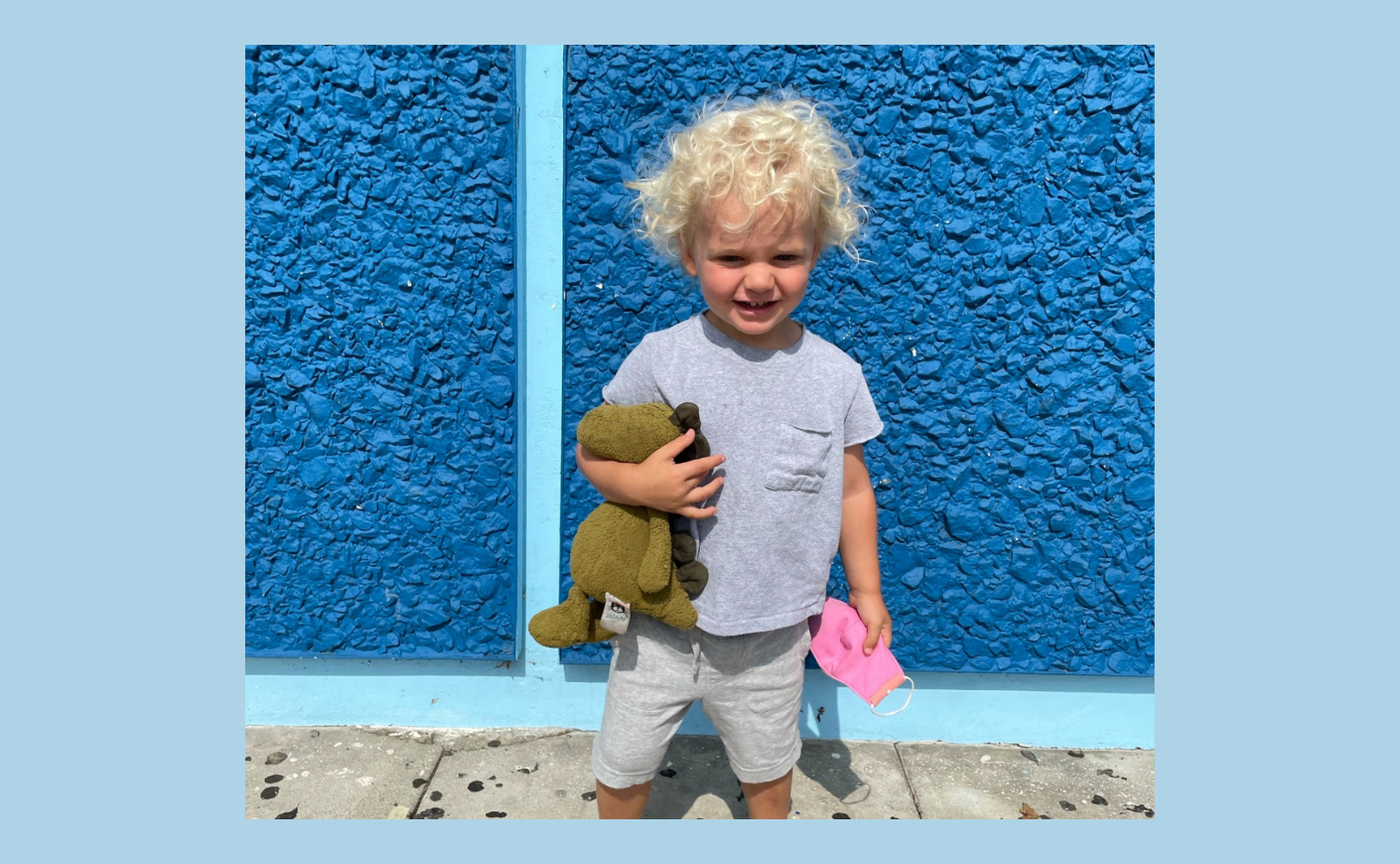Last week, Los Angeles mom Anne Walls was stopped at a red light when she got an email with coronavirus test results for herself and her two children. They’d already tested negative once after exposure to the virus a few days earlier, and this most recent round of tests was a final check to make sure they were all clear seven days later.
Walls tested negative, and so did her husband. She opened her daughter’s results and got the same conclusion. Then she saw the findings for her 2-year-old son, Gus. He was positive for Covid-19.
“I truly almost crashed my car,” Walls told KCM. “I was shocked.”
As we navigate the current phase of the ever-changing pandemic and the surge in cases caused by the highly contagious Delta variant, personal stories like Walls’s are an important reminder of how the virus rears its head in different ways, even among families in which those old enough to do so have been fully vaccinated.
In Walls’s family, Covid precautions have been top of mind since last year. Because her 5-year-old daughter attends preschool and is therefore integrated into a wider community, the family “kept it tight with everyone else." They maintained a close circle to limit their exposure and underwent testing often to ensure the safety of themselves and the neighbors with whom they arranged a nanny share for their young children.
And still, her son Gus picked up the virus from an unexpected place — a vaccinated relative.
The family was out in the park for an outdoor ballet lesson when this relative, who they hadn’t seen in a while, came by to join the fun for a visit in an open-air setting. Their time together was brief — about an hour, Walls recalled — and no one was wearing masks since the adults had been vaccinated and they felt the additional safety of being outside. That was on a Saturday.
“And then that Monday, the relative called and said that he just tested positive for Covid and, I mean, my butt fell out of my body,” Walls said. “I was just shocked, truly. He was like, ‘I feel so horrible. I saw you guys on Saturday. I had no idea.’ He started feeling bad on Sunday, and then Monday got tested because he felt absolutely atrocious.”
Walls and her family immediately “locked it down” to avoid possibly spreading anything to others, but she also felt immensely frustrated at being thrown into quarantine after being so careful — and successfully shielding herself and her loved ones from exposure to the virus — during a year and a half of “this complete madness.”
“It feels like you get so close to the finish line, and then literally, they’re like, ‘Just kidding — this is actually a marathon. You thought this was an 800-meter dash,’” Walls said. “It completely ripped the rug out from under us.”
While her relative — who is older, has pre-existing conditions, and is susceptible to the worst of Covid — battled the infection, Walls and her family got tests for themselves four days after their exposure. Everything came back negative. But once they hit the seven-day mark, her husband suggested one more round of tests to be totally sure. That’s when Gus’s positive result came back.
“My overwhelming emotion was this really strange mix of abject terror and true rage,” Walls said. She worried for the health of her son and lamented that she hadn’t made him wear a mask in the park, even though all signs pointed to it being safe to go without a face covering outdoors, especially among vaccinated people.
It’s important to note that while these “breakthrough cases” of Covid among the vaccinated are not what’s driving the current surge in infections, inoculated people who test positive are in danger of passing it on to others, as Dr. Anthony Fauci recently explained to KCM.
“The level of virus in the nasal pharynx of a person who’s vaccinated and infected is the same level as the level of virus in the nasal pharynx of an unvaccinated person, so you can make a reasonable assumption that they can be equivalent in how they transmit,” Fauci said.
Still, Dr. Fauci emphasized that this doesn’t mean that the vaccine isn’t doing its job. “The vaccine is doing exactly what we wanted it to do,” he said. “It’s preventing people from getting seriously ill — that’s the reason why you get vaccinated.”
After her personal experience, Walls couldn’t agree more with that assessment. While her relative’s infection was particularly tough on him, Walls said she knows it would have been worse if he hadn’t gotten a shot beforehand.
“If the person who gave it to Gus unknowingly hadn’t been vaccinated, I don’t think he’d be alive,” she said. “I’m very aware of how bad it was for him that first week. It was really scary for a couple of days — and he was vaccinated.”
In the case of her son, Walls says Gus has been lucky. He hasn’t dealt with any major symptoms (in fact, “he’s just his normal, totally psychotic self,” Walls said of her rambunctious toddler), and so far no one else in the family has picked up his infection. Walls is nervous, however, about what this means for back-to-school plans for her daughter, who now poses a risk to classmates after exposure even though she hasn’t tested positive herself.
But even after this harrowing experience with the virus, Walls says her mind hasn’t changed about the importance of getting a vaccine. “It’s just mitigating risk as much as possible,” she said. “Why would you not?”












